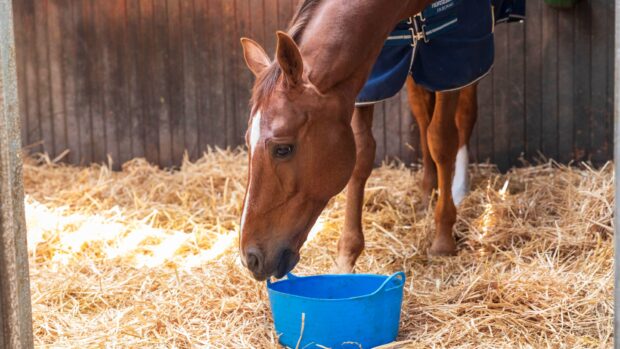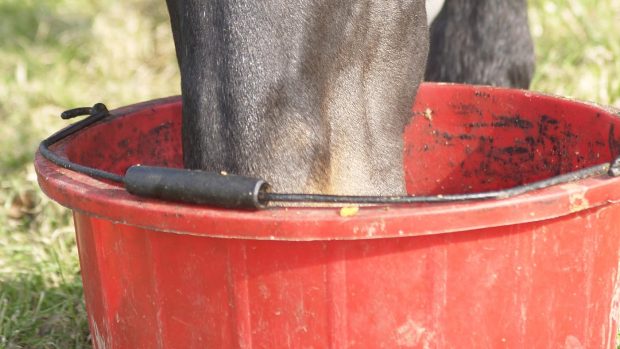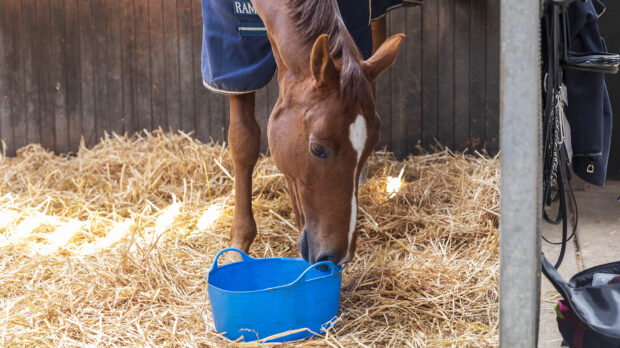Spillers’ equine nutritionist Clare Barfoot provides one H&H forum user with some insightful information on whether a certain feeding regime can help reduce a horse with shivers
Q: Feeding advice for a horse with shivers: “I’m finding equine nutrition a minefield and wonder if you can help please. I purchased my horse last summer and he kept his weight really well until the last sudden batch of snow in March and he really dropped off. He is extremely food sensitive. For example I gave him really good quality hay and it sent him absolutely crazy and unrideable, even when soaked. He is now out 24/7 and gets two meals a day of Hifi molasses-free, Spillers hi fibre nuggets, Farriers Formula, gut balancer and a vit E/selenium supplement as he has a mild shiver. We have plenty of grass and he’ll pick at a haynet when I bring him in to groom and ride but isn’t that fussed. He obviously needs a low sugar/starch diet due to the shiver. I can’t work out what was in the good quality hay that sent him so crazy — possibly the protein? He is very happy in himself and doesn’t need any more energy for ridden work. Does you have any recommendations as to what to try feed-wise? I’ve done tonnes of research but just feel like I’m going round in circles. Many thanks from one confused horse owner!”
A: The ultimate cause of shivers in horses is unknown, but it is more likely to be related to abnormal brain function than a muscle disease.
There was some belief that shivers was in some way associated with Equine Polysaccharide Storage Myopathy (EPSM) but further research doesn’t support this theory — it’s just that breeds with a higher prevalence of shivers also tend to have a high prevalence of EPSM.
If a horse has both conditions providing a low non-structural carbohydrate (NSC) diet that’s supplemented with high levels of vitamin E and selenium has been shown to help in early cases, which is why you were initially advised this. However if your horse just has shivers this type of diet is unlikely to directly help.
Having said that, it is healthier for every horse or pony to have a diet based on fibre while keeping the NSC as low as possible.
Continued below…
Related articles:
- H&H forum: find out what H&H readers suggested
- 19 super-fast facts about feeding
- Read more expert feeding advice
So in the summer months if he holds his condition on grass alone I suggest you feed a good quality balancer alongside a high oil alfalfa based chop such as Spillers original multi balancer and Spillers alfalfa-pro fibre; this way you can be assured he will have a fully balanced diet including an adequate supply of vitamin E and selenium.
During the winter months, if you are concerned about weight loss, he will need more calories in his diet but again because he can be excitable you want to keep the NSC (sugar and starch) at a minimum so Spillers high fibre cubes are a good choice, and if you feed the full recommended amount you can reduce or eliminate the balancer.
Continued below…
With regards to what may have affected his behaviour when you fed the good quality hay it’s more likely to be that the hay was high in sugar or that it just simply provided more energy than he required than anything relating to protein as protein is not a primary energy source in the horse.
For more information on feeding your horse or pony, call the Spillers care-line on 01908 226626.




